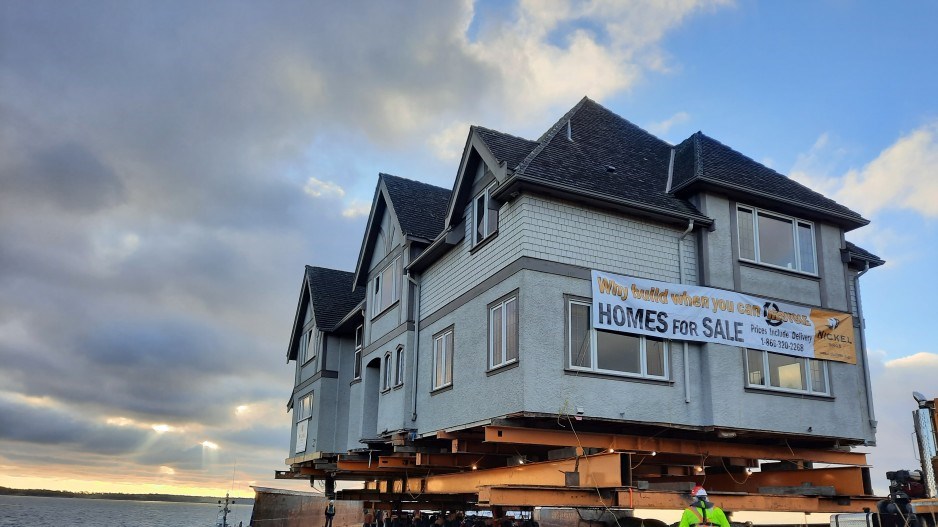We're in the middle of a housing supply and affordability crisis, yet hundreds of good homes across Metro Vancouver and thousands across Canada are being destroyed every year.
Between 2016-2021, metropolitan areas in British Columbia were some of the fastest growing in Canada. Vancouver welcomed 179,000 new residents, a 7.3 per cent population increase, while Victoria, Nanaimo, Kelowna and Kamloops all experienced increases between 8-14 per cent. This growth in population, coupled with the rising demand for housing, shortage of buildable land and sky-high property values, have put pressure on our affordable housing supply.
Communities across the province are feeling the heat to build more affordable housing, and fast. In response, we’re seeing thousands of single-family homes being torn down each year and trucked to landfill to make way for multi-family residential buildings and high-rises.
Fortunately for our growing communities and our environment, we can save many homes that are slated for demolition and provide safe, affordable housing to rural coastal and First Nation communities through proven relocation strategies. House relocation preserves embodied carbon, reduces landfill waste and disposal costs, preserves skilled labour and time that went into a home’s construction, and creates affordable, high-quality housing at a fraction of the cost and time it takes to build new.
Vancouver Mayor Ken Sim said at a recent news conference that we need more housing of all types. This is also true for communities across the province, and relocating homes from urban areas can be part of the solution. Of the approximately 3,600+ homes destroyed across Metro Vancouver and Vancouver Island annually, 20 per cent (720) would qualify for relocation and another 60 per cent could be deconstructed to salvage valuable building materials.
In 2023, two bungalows that were slated for demolition were instead donated by TLA Developments and moved to the Songhees Nation. Songhees Chief Ron Sam welcomed the upcycling of homes onto the Songhees reserve to address their housing shortage. In July, five homes in Coquitlam will be saved and relocated which will save tens of thousands of tonnes of valuable building materials from landfill, preserve up to 36,000 kilogramss of embodied carbon and provide housing to new owners without tapping into new resources. The lots the homes will be moved from are planned to welcome 49 new townhomes; helping Coquitlam reach their housing target goals. The developer, Foster Living, did the right thing by exploring the option to relocate instead of defaulting to demolition.
With thousands of high-quality homes slated for the wrecking ball in the coming years, there’s a massive opportunity to relocate and re-purpose or deconstruct and reuse valuable building materials. However, without a supportive policy environment for house relocation and deconstruction, the rapid rate at which communities are building may have the unintended consequence of increasing the number of home demolitions.
Last week, my organization Light House launched a new report, A Blueprint for Change, that offers an approach to prioritize house relocation and deconstruction over demolition. The report outlines an attractive financing model that benefits both the developer, homeowner and the recipient and puts forward a set of policy recommendations that, if adopted by the province and local governments, could save thousands of beautiful, well-built homes, provide housing in exurban communities at a fraction of the time and cost it takes to build new and help provincial and municipal governments address the affordable housing and waste crisis.
A Blueprint for Change recommendations include:
- Require that homes be assessed to determine if they should be moved or deconstructed
- Grant developers “early green removal permits” if they move or deconstruct a home
- Set demolition deposits that are refundable if a home is moved or deconstructed
We also need developers, realtors and homeowners to get to a place where they automatically think about relocation and deconstruction when removing a home. Demolition needs to take a back seat.
Gil Yaron is Managing Director of Light House, a Vancouver firm dedicated to helping government and industry advance regenerative built environments.




